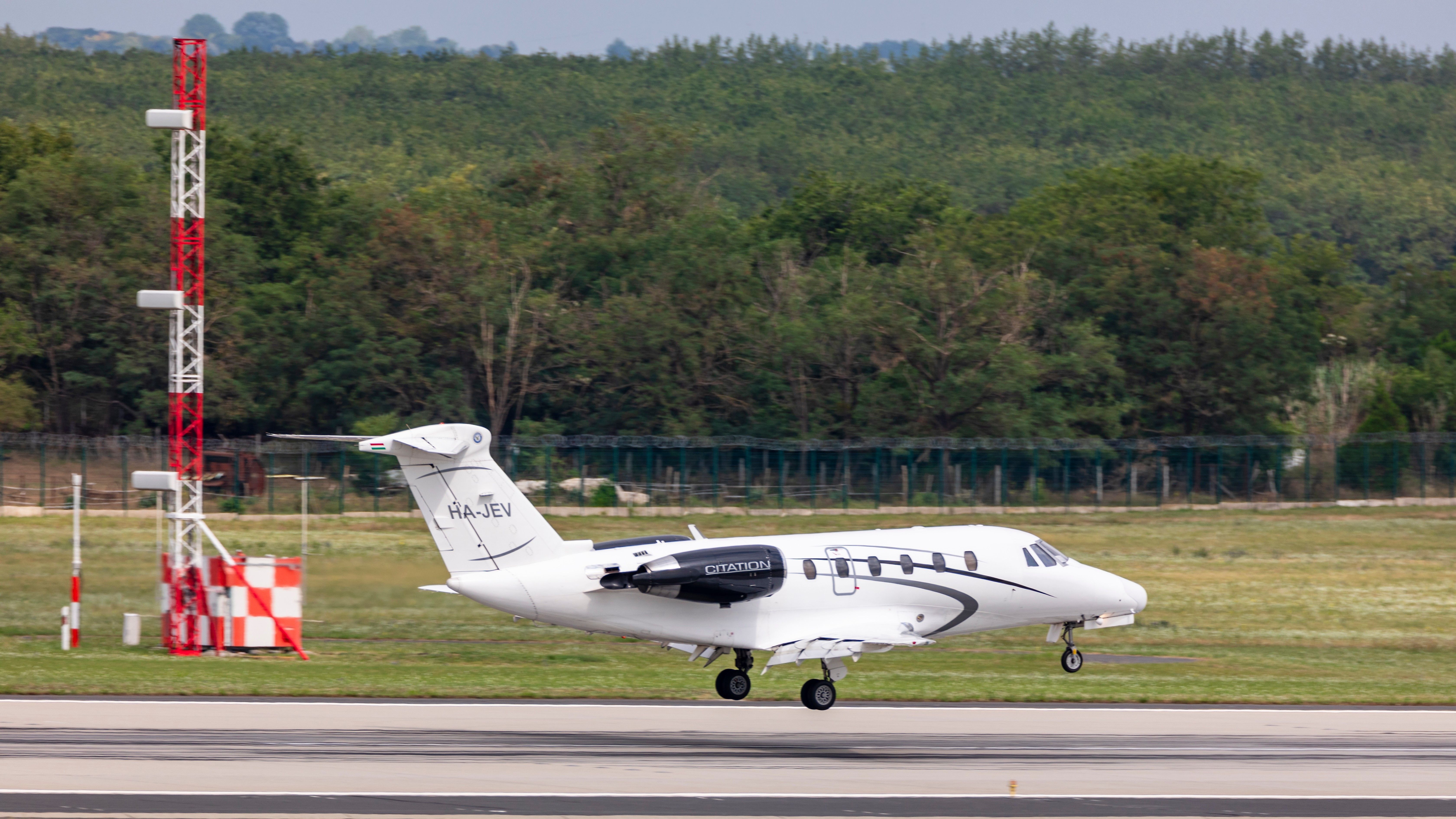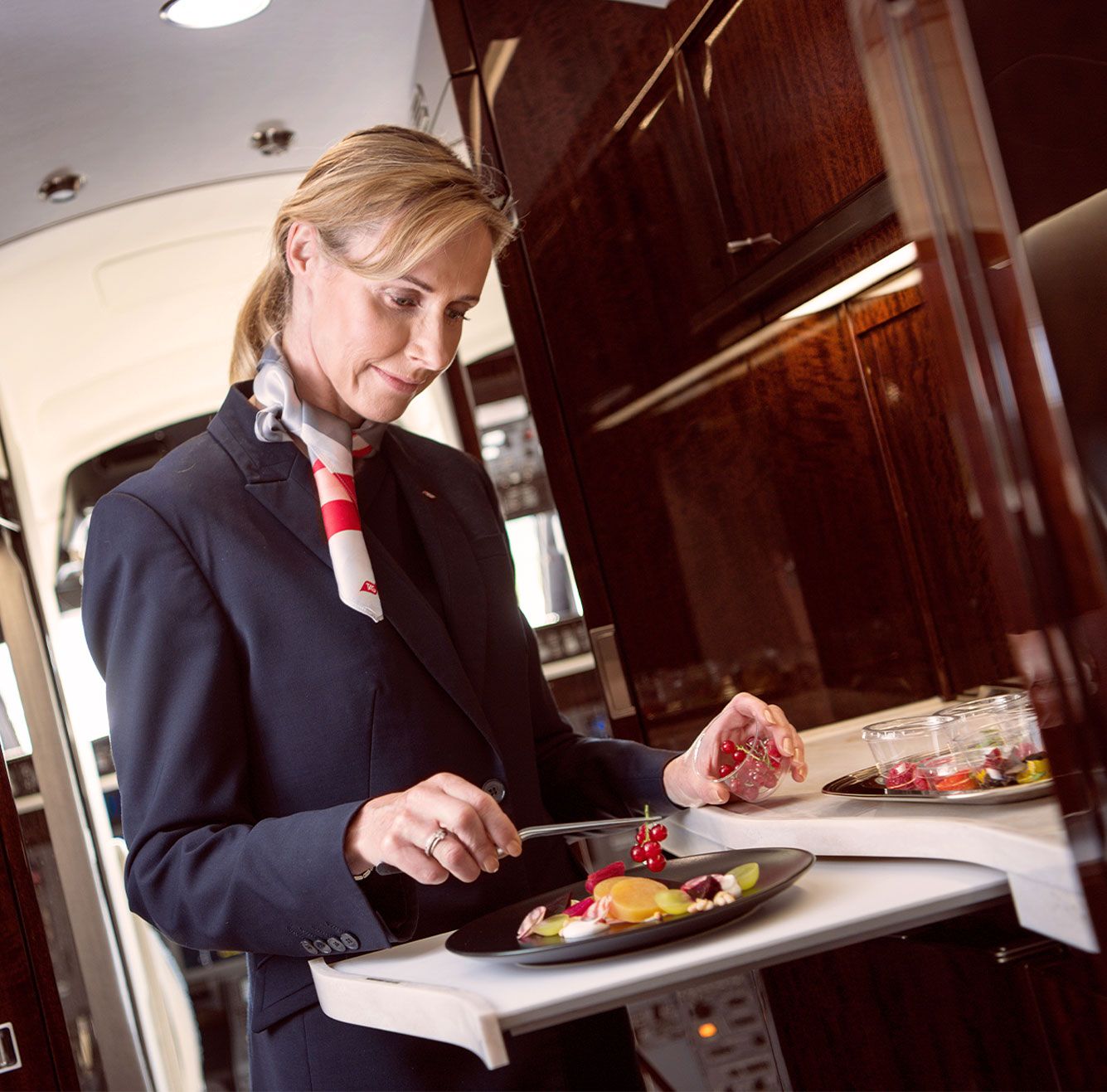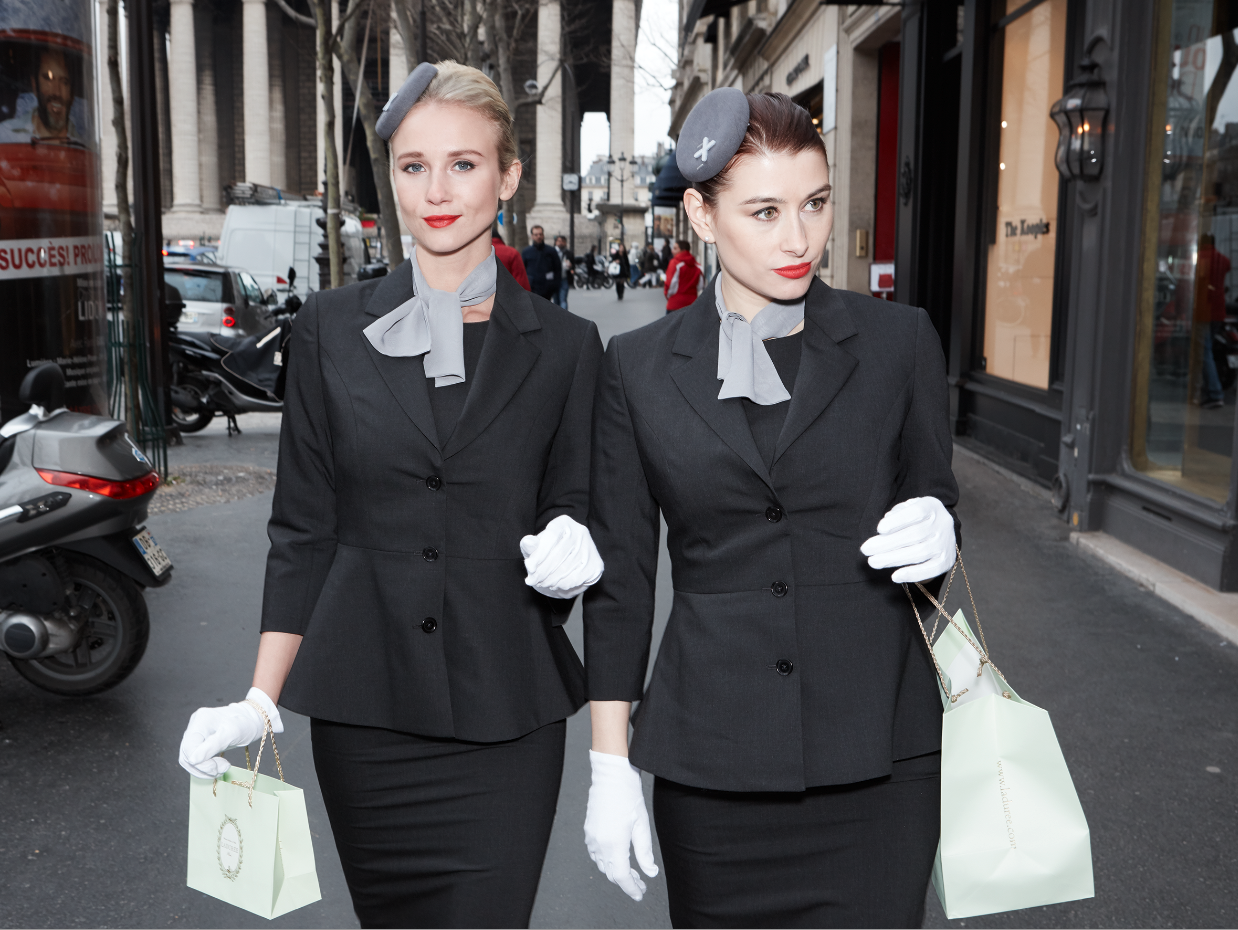Summary
- Private jet flight attendant jobs are highly competitive and often not advertised, so having flight attendant experience and training is preferred.
- A professional resume and photo are important for showcasing your skills and experience, and keeping up with additional skills like food hygiene and silver service can be advantageous.
- Building a strong network and maintaining a good reputation is crucial in the small world of business aviation, as many jobs are obtained through personal recommendations and word-of-mouth.
Getting a job on a private jet as a flight attendant can be quite difficult. It is a very niche area, and there is a lot of competition for roles, so much so that many jobs are not even advertised. So what do you need to work on a private jet?
Flight attendant experience
Some people do get into private jets without ever being a flight attendant. They may come from a five-star hotel background or from yachting or from knowing someone already in the industry. However, it is advisable always to have a well-trained crew member onboard in case of an emergency. As flight attendants do have intensive training in dealing with all emergency situations, ex-flight attendants are generally preferred.
A professional resume and photo
A professionally taken photo can say a thousand words, so make sure it is the best it can be. Usually, one headshot and one full-length photo are asked for. It is important to be dressed smartly and look professional Resumes should include details of flying experience, aircraft types worked on, passport and visas, flight attendant training and crew license, and medical. Make sure that it is easy to read and shows how suited you are to the job.
Top up skills
As positions come up rarely, it's important to keep up to date and take further training as necessary. Food hygiene, silver service and plating are extremely important. Catering or chef courses are definitely an advantage and sommelier skills are very useful. Butler training is becoming popular, too, as well as barista training. Etiquette, protocol, and cultural awareness are pretty crucial to the role as is knowing what the current food trends are and what the high-end restaurants are serving.
Building a network
Business aviation is quite a small world, and names get around quickly, good and bad! So, it's important to have a close network of colleagues and build yourself a good reputation. Keep a low profile on social media, and be aware that your next employer will be looking.
Interviews
Interviews for private jet flight attendants can be quite challenging as operators and owners are very specific about what they are looking for. They may require things like certain languages or nationalities or quote a specific age range, which makes jobs even harder to find.
Some operators will request that you travel to another country at your own expense to see if you suit them, in person. Others will ask you to do a service test, or you may have to do a trial flight with them. Sometimes, it will be a series of online interviews.
Get the latest aviation news straight to your inbox: Sign up for our newsletters today!
Looking for jobs
Many jobs are by word of mouth and often not advertised. Personal recommendations are also important, as well as using your network to hear about potential openings. Sometimes, jobs are advertised on networking sites like LinkedIn. Aviation-specific job websites like Aviation Job Search, Latest Pilot Jobs, and FlightGlobal are all useful tools for finding work as a private jet flight attendant. There are also some Facebook and WhatsApp groups that share information about new positions.
Sources: Aviation Job Search; Latest Pilot Jobs; FlightGlobal



